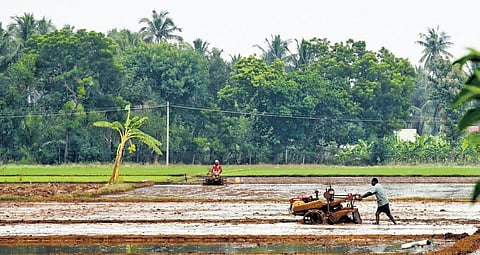Simply Scientifico: More cultivation sans soil, little water
Researchers have found a way to enhance food cultivation without using soil, but instead using a new cultivation substrate that is stimulated electrically. The new method is helpful not only in arid areas but also in urban settings to grow food crops even vertically through a method called hydroponics. Researchers from Linköping University in Sweden successfully tried this method on barley seedlings, achieving 50% more cultivation than the traditional soil-based method — a soilless cultivation.
The research team developed an electrically conductive substrate, called ‘eSoil’, well-suited for hydroponic cultivation, which they tried on barley, ending up discovering they could get 50% more in just 15 days with plant roots being electrically stimulated. In hydroponic cultivation, plants can be grown without soil while supplying only water and nutrients, besides a substrate that can replace the soil for the roots to get attached to.
As it is a closed system cultivation, the water is recirculated to enable each seedling to get water and optimal nutrients. The recirculation with minimal addition of water also means minimum use of water while ensuring maximum nutrient supply to the plant — something not possible in traditional soil cultivation systems.
The Linköping University research team improved upon the system to use electronic cultivation, using an eSoil substrate made of cellulose, the most abundant biopolymer, mixed with a conductive polymer called PEDOT. This combination as such is not new, but this is the first time it has been used for plant cultivation and for creating an interface for plants in this manner. This eSoil has low energy consumption, with researchers vouching for the new study opening a pathway for new research areas to develop further hydroponic cultivation.

